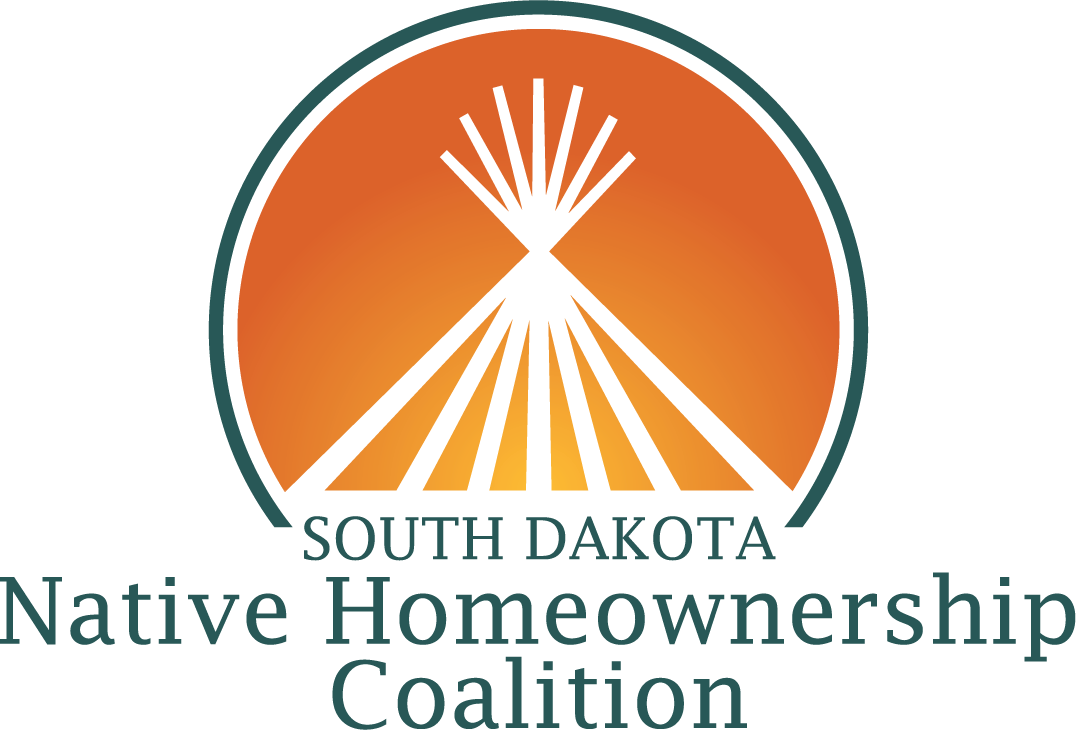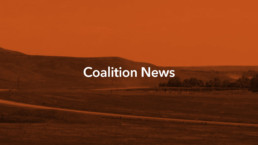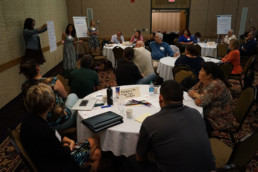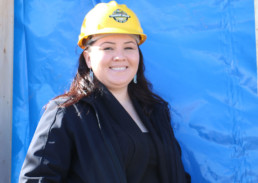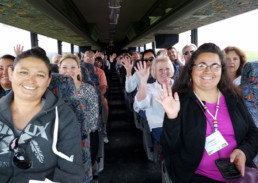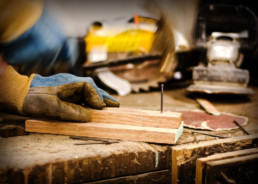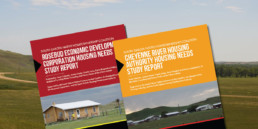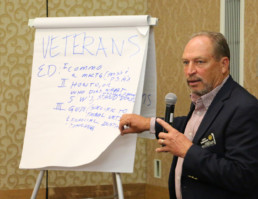Tribal Leaders Support Coalition’s Policy Recommendations
At its December meeting, the Great Plains Tribal Chairmen’s Association adopted two resolutions in support of the South Dakota Native Homeownership Coaltion’s policy recommendations to federal policymakers.
The first resolution supported legislative amendments to the US Department of Veterans Affairs Native American Direct Loan (NADL) program to improve homeownership opportunities for Native veterans on Indian reservations in South Dakota.
The second resolution supported other broader homeownership recommendations including:
- Support for the implementation of the USDA Rural Development 502 home loan relending pilot
- Funding for the Bureau of Indian Affairs Housing Improvement Program
- Improvements to the HUD Section 184 loan guarantee program to increase deployment on trust land
- Exploring new partnerships with Fannie Mae and Freddie Mac as part of their Duty to Serve implementation plans
The Coalition appreciates the support of Cheyenne River Sioux Tribe Chairman Harold Frazier, who introduced the resolutions. We look forward to continuing to collaborate with the Great Plains Tribal Chairmen’s Association and South Dakota’s tribal leadership and Tribal Veteran Service Officers to promote these policy changes.
Coalition to Launch Round II of Housing Needs Studies
With support from the South Dakota Housing Development Authority, the South Dakota Native Homeownership Coalition (Coalition) will be facilitating housing needs studies (studies) in two small tribal communities in South Dakota. Under the program guidelines, eligible tribal communities must have a population of 10,000 or less. The size of the community/reservation will determine whether one specific community or the broader reservation is assessed. Work to conduct these studies will start by January 1, 2018, and studies will be completed by June 30, 2018.
These studies will play an important role in effective planning for future housing efforts. The study for each community will include the following data elements: existing housing stock, housing issues, homeownership information, information on housing providers and programs, potential barriers to homeownership, demographics, economics, and recommendations.
In facilitating these housing needs studies, the Coalition will identify two tribal communities to be assessed (through an application – see link below). The Coalition will contract with Big Water Consulting, an experienced firm which has conducted prior studies, to carry out the assessments. Big Water Consulting will work closely with the communities to be assessed, and the sponsoring tribal organization must designate at least one staff member to assist the firm in conducting the assessment. It is critical that the sponsoring community dedicate sufficient time and attention to working with Big Water Consulting.
The total budget for each study will not exceed $20,000 per study. Support from the Coalition (provided by the South Dakota Housing Development Authority) will cover 50% of the cost of each study, for a maximum of $10,000 per study. Each selected community will be required to pay a cash match to cover the other half of the cost of its study (up to $10,000). There are no restrictions on the source of match funds; however, match funds must be provided in cash by January 1, 2018. Applicants will be asked to indicate potential sources of match as part of the application process.
Submitting Applications
To apply to participate in the housing needs study, interested communities should complete the following application. Applicants will be evaluated based on current homeownership efforts, involvement in the Coalition, plans to use information collected through the assessment, and ability to provide matching funds.
The application package should contain:
- Completed application form (signed)
- Scanned copy of governing body minutes or resolution authorizing application
Applications should be submitted by November 30, 2017 per the instructions in the application package.
Coalition Continues Growing and Developing
On September 11-13, 2017, over 60 members of the South Dakota Native Homeownership Coalition gathered for our annual planning session and other activities held in conjunction with the South Dakota Housing Development Authority’s Annual Housing Conference in Pierre, South Dakota. The series of events provided a platform for our continued growth and development, as well as peer sharing and networking opportunities.
Coalition Planning Day – September 11, 2017
Attendees of our fourth annual planning day represented our diverse membership, and included Native and non-Native nonprofit organizations, Tribally Designated Housing Entities (TDHEs), tribal departments, federal agencies, state agencies, lenders, and Community Development Financial Institutions (CDFIs).
The day’s full agenda included:
Preview of the Coalition’s “Native Homeownership is Possible” video series
Coalition members had the opportunity to view and provide their feedback on the first two of a series of videos that the Coalition is developing to promote the message that “Native Homeownersip is Possible.” Members’ feedback was very positive about the videos, which are being produced by David Cournoyer of Plain Depth Consulting and Jay Fishback of Northern Voyage Productions. After watching the videos, Coalition members also shared suggestions bout how to launch the videos and what additional materials should accompany them.
Exploration of strategies to promote the Coalition’s long-term sustainability
Recognizing the importance of going beyond foundation support and diversify funding sources, Coalition members explored different potential income generating strategies, including:
- Membership dues
- Registration fees
- Holding a homeownership development summit
- Producing a post-purchase curriculum
- Reaching out to tribes for support
- Creating a development corporation
Information sharing on the appraiser apprenticeship process
Brian Gatzke, an appraiser out of Brookings, SD, shared information about the appraiser apprenticeship process and requirements for certification. Coalition members are excited to work with Brian and other partners to support appraiser candidates, and have formed a special subcommittee of the Physical Issues Committee to focus on this issue. Next steps for this subcommittee include working to identify potential appraisal apprentice candidates and supervisors.
Information sharing on Enterprise Community Partners’ VISTA Program
Enterprise Program Director Vince Gallagher shared information about this program, which can place VISTA volunteers at Coalition member organizations. Please stay tuned for a webinar with more information on program guidelines, what VISTA volunteers can do, and how to request a VISTA volunteer at your organization.
In-person Coalition committee meetings
During the planning session, Coalition members had a chance to hold in-person committee meetings to review progress over the past year, and set 2018 milestones. Select milestones that committees will be focusing on include:
| Committee | Select Milestones |
| Homebuyer Readiness |
|
| Funding and Finance |
|
| Physical Issues |
|
| Veterans |
|
| Policy |
|
Native Homeownership Conference Track – September 12-13, 2017
This year, the Coalition planned and provided the conference’s Native Homeownership Track, with the following workshops:
- Paths to Homeownership for Native Veterans
- Estate Planning for Homeowners
- Sustainable Homeownership Development on Crow Creek
- Beyond Housing: Building Neighborhood Communities
- Preparing a Construction Workforce: the Coalition’s Construction Internship
Featuring topics that are relevant to Coalition members and providing a valuable opportunity to share the work of the Coalition, the workshops were well-attended, generating productive discussions and positive feedback.
Additional Gatherings
This year, the Coalition also facilitated a number of additional gatherings in conjunction with the SDHDA conference:
- Breakfast to explore increased lender participation in the Federal Home Loan Bank’s Native American Homeownership Initiative (NAHI)
- Homebuyer practitioner gathering focused on data collection
- Post-conference debriefing session
At the post-conference debriefing session, participants shared what they were most excited about the conference and the coming year. Responses included:
- Starting to focus on estate planning, wills and successorship
- Veterans’ programming and the CDFI/NADL model
- Appraiser initiative
- Looking at community engagement
- Focusing on the 502 re-lending pilot program
Please share your input about the Coalition!
We are seeking feedback from all stakeholders about how valuable the Coalition is to you and your organization. Please click on the link below to complete a brief survey by Friday, September 1, 2017.
Chance for FREE Conference Registration!
All survey respondents who complete the survey by 5 pm MT on September 1 will be entered into a drawing to win a free registration to the annual South Dakota Housing Conference on September 11 – 13, 2017. A $200 value!
Thank you for sharing your perspective! We will share results at the Coalition’s planning meeting on September 11, 2017 in Pierre.
Traveling a Path to Self-Sufficiency
January Mathis Works Toward Homeownership
After a nearly five-year journey, January Mathis, a member of the Oglala Sioux Tribe, will soon be moving into a home she can call her own. January’s home is currently one of seven under construction in Thunder Valley Community Development Corporation’s regenerative community just outside of Porcupine, South Dakota, on the Pine Ridge Reservation. When complete, the community will feature 21 energy efficient homes and meet critical housing needs for local families.
With an estimated 4,000 additional units needed to provide adequate housing for the families on the Pine Ridge Reservation, the development will only slightly alleviate the housing shortage on the Reservation. However, nonprofit organizations like Thunder Valley and Lakota Funds are key players in creating models and providing solutions.
Both organizations are active participants in the South Dakota Native Homeownership Coalition, and are just a few of the many stakeholders that are forming collaborative partnerships to increase homeownership opportunities for Native Americans throughout the state. In January’s case, both Lakota Funds and Thunder Valley are providing critical pieces of the puzzle to make homeownership possible.
January began her homeownership journey in 2012 when she started working with Lakota Funds. She started out by utilizing a Credit Builder Loan to pay off debt and improve her credit score. During this time, she completed various trainings offered by Lakota Funds and built her financial skills so she could successfully create and stick to a budget and responsibly use credit.
In the summer of 2015, January enrolled in Lakota Funds’ Individual Development Account (IDA) program to start saving for a down payment on a home. She began making regular deposits into her savings account at the Lakota Federal Credit Union. For every dollar she deposited, Lakota Funds provided a $3 match. While she was saving, January completed a homeownership preparedness course offered by Thunder Valley. Thunder Valley also helped her through the USDA home loan application process.
By the end of 2016, January had deposited $1,440 into her IDA, and Lakota Funds provided a match of $4,320. When she signed the papers for her new home, January was able to put $5,760 down!
Due to limited options, January currently lives in low-income rental housing in Pine Ridge, South Dakota, about an hour’s drive away from her place of employment—the Pine Ridge Area Chamber of Commerce in Kyle. She is excited that her new home will only be a 10-15 minute drive to work. But homeownership means more to her than that.
“When I think of my own home, the first thing I think of is freedom,” she says. It also means stability, she adds. January explains that she moved quite a bit when her kids were younger, but this home will always be “a place for my kids to call their own.”
Homeownership Models Shared During Annual Convening
The Coalition’s Annual Tour & Convening, hosted on the Pine Ridge Reservation this year, uses a peer-sharing model to showcase successful homeownership programs. This year’s event was attended by approximately 50 individuals from nonprofit organizations as well as tribal, local, state, and federal entities, including Joyce Allen, Deputy Administrator for Single Family Housing of USDA Rural Development. Homeownership models shared on the tour included the following examples:
- A subdivision built in the 1990’s utilizing Low Income Housing Tax Credits, which is now being converted to privately-owned homes.
- The construction of “tiny homes” adjacent to other homes to help alleviate overcrowding.
- A case study of a veteran who was previously living in a veteran’s homeless shelter, moved on to subsidized housing, and then to homeownership.
- The new construction internship program at Oglala Lakota College, designed to help increase the construction workforce and available housing stock.
- The Self-Help Housing development currently under construction at Thunder Valley Community Development Corporation’s regenerative community.
“The Coalition’s collaborative approach has been highly successful so far. It gives stakeholders a hands-on opportunity to build knowledge, bring it back home, and then apply it in our own communities,” says says Tawney Brunch, a member of the Coalition’s Executive Committee.
She adds, “Many of the homeownership practitioners who have attended Coalition events are inspired. Homeownership is a long-term effort, and events like this give us fuel to keep going.”
In support of National Homeownership Month, the Oglala Sioux Tribe presented its Proclamation of Oglala Nation Homeownership Month, acknowledging the many benefits of homeownership and its commitment to support strategies that increase homeownership for its tribal members. The announcement kicked off the South Dakota Native Homeownership Coalition’s Annual Tour & Convening, which explored several innovative pathways to homeownership currently underway on the Pine Ridge Reservation.
“We are grateful to have this support from President Weston. It is a meaningful statement that will help raise awareness of the importance in helping families toward homeownership,” says Brunch.
Coalition Responds to Contractors’ Input
In roundtable discussions with contractors about how to increase housing stock on South Dakota’s reservations, contractors have shared some of the obstacles to residential building, including the lack of inspectors and work-ready employees. In response, our Physical Issues Committee is working to support efforts to increase the number of certified inspectors, and designing a summer internship program for building trades students at Oglala Lakota College to work directly with contractors.
In January, the Coalition held a two-day training to support contractors, TDHE staff, and other nonprofit housing staff in preparing for the inspector certification exam. Thirty seven participants completed this training, and will be taking the certification exam. We wish them luck!
Through the construction internship pilot program, up to twenty students from Oglala Lakota College will spend ten weeks this summer working directly with contractors on the Pine Ridge and Cheyenne River Reservations. The internship will provide the opportunity for students to develop relationships with contractors (leading to potential employment in the future), and gain hands-on work experience. The program will also incorporate financial education and workforce readiness training for students.
Housing Needs Assessments Represent Historic Partnership
Two tribal entities, Cheyenne River Housing Authority (CRHA) and Rosebud Economic Development Corporation (REDCO), recently completed housing needs assessments for their respective communities. The two organizations were chosen through an application process that we facilitated in September 2015. The studies were sponsored by the South Dakota Housing Development Authority and mark the first-ever state-supported housing needs assessments of tribal lands. We couldn’t be happier about this partnership, and hope to build on it moving forward.
Each study accurately assessed household characteristics, demographics, and the unique supply and demand characteristics of the local housing markets. While housing development on the reservations is dominated by low-income rentals, the studies revealed a substantial demand for homeownership. The lack of available housing for those who do not qualify for low-income units has forced many community members who currently have employment on the reservation to move off-reservation for housing. The study points out that emigration of skilled individuals off the reservation could significantly stunt community and economic development.
“Many families think they aren’t eligible for homeownership, but they just need a pathway to get there,” says Sharon Vogel, Executive Director of CRHA. They plan to apply information gained from the study to a 188-unit housing development in Eagle Butte.
Taffy Lafferty of REDCO says they will apply study findings to a consumer-driven development of a 750-unit mixed-use subdivision in Mission. She says, “Our people want a safe place to live. Safety and stability is the priority. Homeownership can bring that.”
The studies not only give each reservation a clear idea of specific housing needs (i.e. – number of bedrooms, affordable monthly payments), but they also provide a better understanding of the type of homeowner preparedness strategies (i.e. – financial education, credit coaching) they will need to implement in order to increase homeownership rates. The studies also provide recommendations on culturally-relevant housing development strategies, such as multi-generational housing.
Coalition Requests Proposals for Video Production
Native Homeownership is Possible
Request for Proposals
Questions
Coalition Launches Task Force to Increase Homeownership Opportunities for Native American Veterans
We are pleased to announce the formation of a new committee that will work to increase access to homeownership resources for Native American veterans. The committee will be co-chaired by Secretary of the South Dakota Department of Veterans Affairs, Larry Zimmerman, and Manaja Hill, the Standing Rock Sioux Tribe’s Veteran Service Officer. The working group will be focusing on veterans’ homeownership matters and specifically address housing stock and land issues, homebuyer education, and subsidies.
“The key step for this committee is bringing the tribes and the state together,” says Secretary Zimmerman.
Hill explains that there are many resources for Native American veterans available, but committee members have found that, in some cases, veterans are not aware of the all of financial and housing counseling resources available that would make their homeownership goals more attainable.
“We will be connecting all of the programs with the specific needs of the veteran,” Hill says. This would include programs available through the tribe, county or state, and the network of organizations that promote homeownership opportunities in Native communities through the Coalition.
In order to do this, the committee will produce guides that will serve as a centralized information resource for South Dakota’s Native American veterans. In order to be more accessible, the guides will use “veteran’s lingo” says Secretary Zimmerman who is a veteran himself. Hill, also a veteran, adds that information in the guides will be categorized by each of the state’s nine tribes since “tribes are not cookie cutter,” and each offers unique benefits.
Hill hopes that their work will be used as a model by other states to help even more veterans. He believes that low-income rental programs “are the foundation of poverty” and that “our vets deserve more.” He says, “Homeownership gives our veterans a sense of pride. They have some thing to take care of. These are things that they are familiar with from being in the service.”
The Coalition launched the Native Veterans Homeownership Committee during its planning session as a pre-cursor to the South Dakota Housing Development Authority’s 26th Annual Housing Conference. The planning session was attended by nearly 100 individuals from tribal, state, and federal agencies, as well as nonprofit organizations, colleges, and financial institutions. In addition to the launch of the veterans committee, the pre-conference event also included working groups that will shape the Coalition’s activities for the next year, and informational sessions on the Coalition’s new statewide impact tracking system for homeownership practitioners and housing needs assessments conducted recently on the Cheyenne River and Rosebud Reservations.
